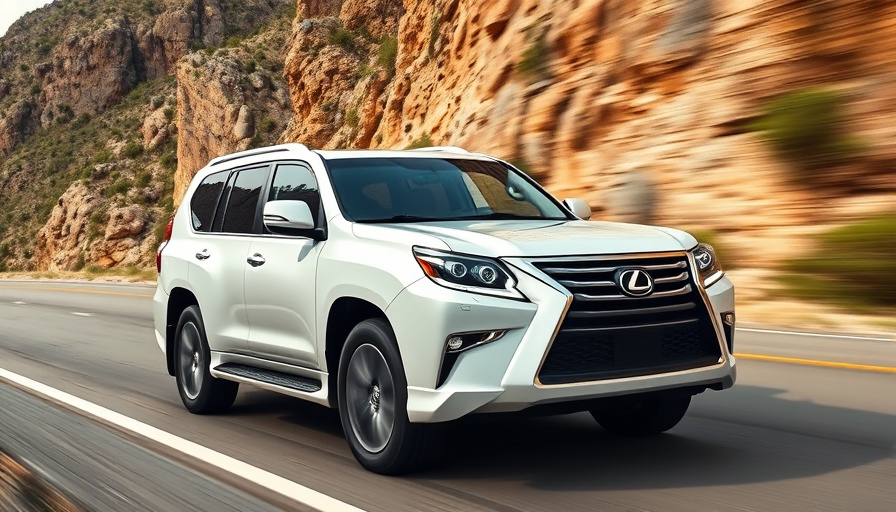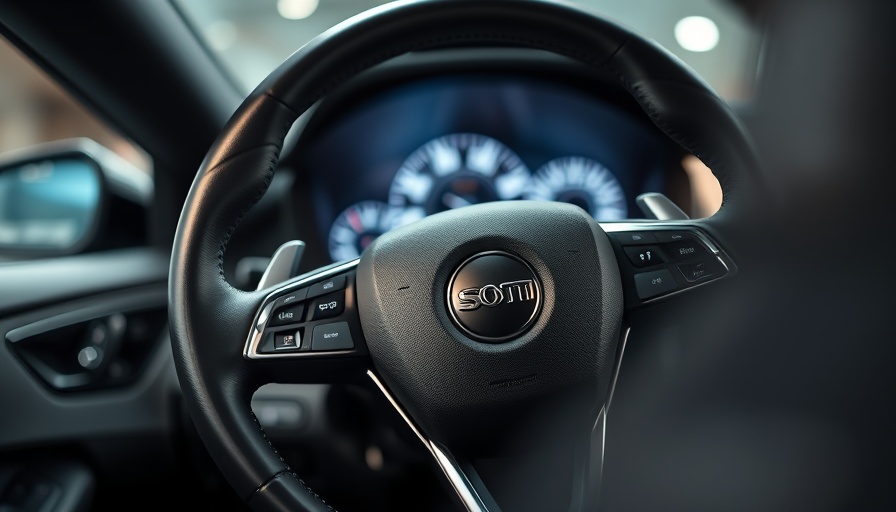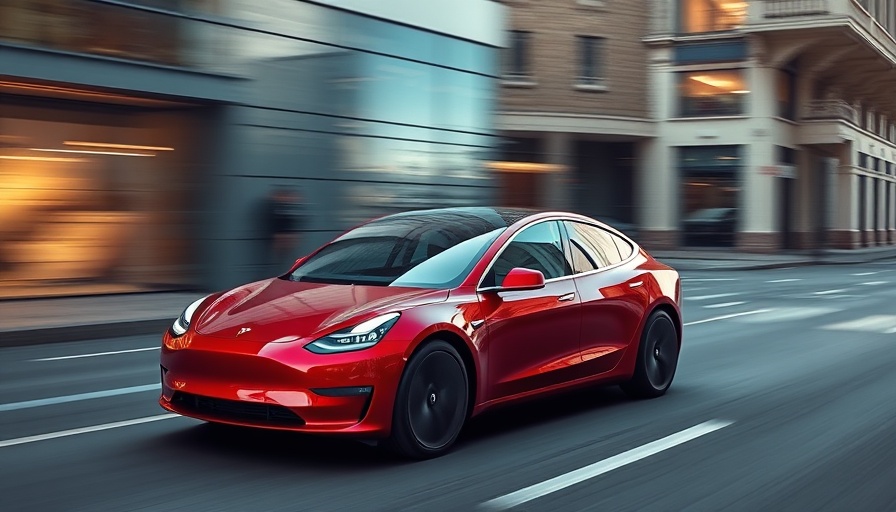
A Divine Design: The Biblical Porsche 911 Targa
In a remarkable fusion of faith and automotive passion, a customized 1986 Porsche 911 Targa named "Streets of Gold" made its debut at Monterey Car Week, stirring both admiration and debate among car enthusiasts and the faithful alike. Designed by bb-Auto and held under the exclusive rights of Galpin Motors in the U.S., this vibrant tribute car was inspired by its owner, Alexander Everest, a healthcare executive and founder of the Southern California-based organization Christ And Cars. The name of the vehicle references a verse from Revelations that talks about golden streets—inciting both awe and scrutiny depending on one's perspective.
The Golden Touch: Unique Features of the Porsche 911
The "Streets of Gold" Porsche is not just a car; it’s a bold statement of faith. The exterior flaunts a stunning metallic gold finish, meticulously complemented by signature styling touches from bb-Auto. Inside, the 911 is a shrine to Everest's favorite biblical references, featuring gauges encased in mother-of-pearl and adorned with 24-karat gold bezels. Notably, the shift knob carved from acacia wood is said to echo the legendary material used for Noah's Ark. It's fitting that this vehicle, designed for spiritual as well as driving comfort, boasts a premium sound system that aims to make the car a rolling sanctum.
Performance Meets Spirituality: A Closer Look at Specifications
Beneath its divine exterior, the 911 packs a punch with a naturally aspirated 4.0-liter engine engineered by Ed Pink Racing, unleashing a formidable 400 horsepower. Enhanced with Porsche Active Suspension Management and Brembo brakes, the vehicle promises not only style but substantial performance on the road. As it clinches grip with Michelin Cup 2 tires wrapped around 18-inch HRE wheels, this Porsche appeals to both spiritual seekers and car lovers eager for thrills.
Social Reactions: The Fine Line Between Faith and Consumerism
As is common with standout creations, the Porsche 911 elicited mixed reactions. While some applaud Everest's creative expression of faith through a luxury vehicle, others crisply question the moral implications of spending extravagantly on a car, a sentiment that reverberates deeply in current societal discussions about wealth and purpose. Comments raise pertinent questions about charitable actions and the social responsibility of wealthy individuals. It’s hard to ignore the contrast between this opulent display of motor engineering and the scripture's teachings on humility and service.
Wider Implications: Faith, Luxury, and Automotive Culture
The conversation around this custom 911 goes beyond the vehicle itself, addressing significant cultural questions: how does luxury meet spirituality? What does the future hold as enthusiasts blend faith with consumer goods? Are we on the verge of a new trend where the automotive world becomes a platform for personal beliefs? Understanding these implications can help us navigate the complex interplay between materialism and spirituality in today's world.
Beyond the Biblical: Insights into Car Ownership and Trends
Beyond its dazzling finish and divine inspiration, Everest's Porsche also serves as an interesting case study in contemporary car ownership trends. The luxury automobile market is increasingly offering personalized experiences that combine individual passions with high-performance engineering. Are we witnessing the emergence of a lifestyle where consumers prioritize not just performance ratings, but also personal values? Buying guides reveal that many consumers are increasingly drawn to vehicles that reflect their identity—be it luxury, sustainability, or ethical considerations.
The Future of Custom Cars: A Blend of Faith and Functionality
As technology advances, so too does the potential for customization in vehicles, allowing for increasingly unique designs that resonate with personal beliefs and values. The demand for vehicles that tell a story—whether through aesthetic choices, engine performance, or ethical materials—will likely grow. Cars like the "Streets of Gold" may pave the way for innovations that intertwine luxury, faith, and functionality, nurturing a culture where every vehicle has a narrative.
What Can We Learn from the "Streets of Gold"?
This gold-adorned marvel has raised eyebrows but also presents space for reflection. It invites car enthusiasts and spiritual seekers alike to consider how vehicles reflect personal narratives. Will we mount our own golden calves of consumer culture, or will we seek vehicles that embody deeper values? As we look toward the future of automotive trends, one thing remains clear—the conversation surrounding luxury cars like the Porsche 911 Targa is never just about the car itself, but the meaning and context behind it.
 Add Row
Add Row  Add
Add 




Write A Comment